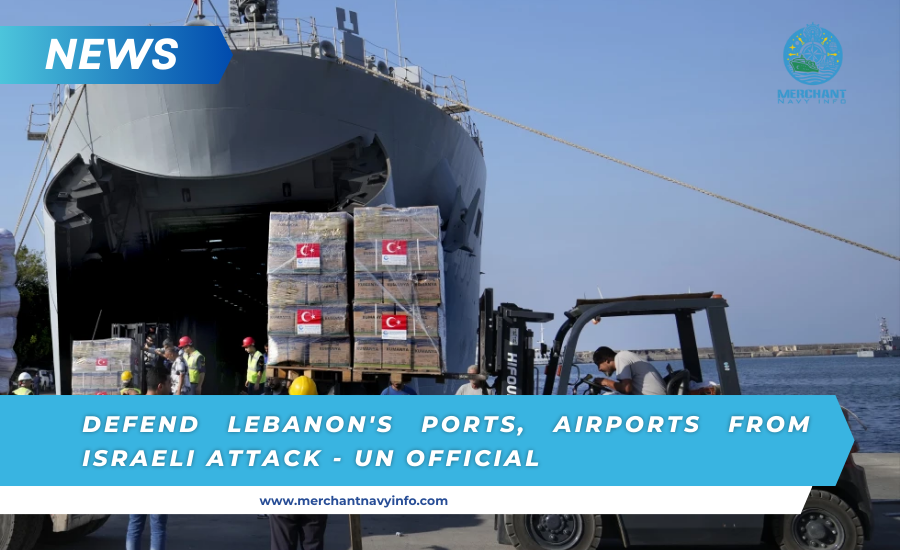
Senior UN official calls for protection of Lebanon’s ports and airports as Israel continues its offensive
A senior UN official visiting Beirut on Saturday said he fears Lebanon’s ports and airports could be out of service as Israel continues its offensive against the Lebanese militant group Hezbollah, with dire consequences for the country’s food supply.
“What I saw and heard today was devastating, but I feel like it could have been much worse and that should have been avoided,” Carl Scow, deputy executive director of the UN World Food Program, told The Associated Press in an interview.
He called for “every possible diplomatic effort to find a political solution” to the war and keep supply lines open.
“We have a lot of big problems, but one of them is that we need to keep ports and supply routes open,” Scow said.
Israel has been fighting Hamas in Gaza since the Palestinian militant group launched a deadly incursion into southern Israel a year ago, and hunger has worsened as humanitarian organizations complain of major obstacles to delivering food to Israel and other supplies to the blockaded enclave.
Scow said he believed Israeli authorities had made a “commitment” not to close Lebanon’s ports and airports.
“Of course, it’s a very dynamic environment. That’s why we don’t take anything for granted,” he said.
In recent weeks, Israel has stepped up airstrikes and launched a ground incursion into Lebanon.
The government estimates about 1.2 million people in Lebanon are displaced, including about 200,000 in collective shelters where the World Food Program provides meals.
Skau noted that the conflict has led to higher food prices, even though Lebanon’s only international airport and its main seaport remain operational. He added that the WFP already has enough food in stock for a month for 1 million people, about a fifth of Lebanon’s population, but is now trying to stockpile enough to meet the needs of that large population until the end of the year.
“Of course, we have to resupply, so ports and other supply routes are necessary,” he said.
For example, he added that the agency moves food supplies overland from Jordan to Lebanon via Syria. Earlier this month, Israel attacked the road leading to the main crossing between Lebanon and Syria, cutting off access to it.
Since the attack on the Masna crossing, people fleeing Lebanon continue to cross on foot. At the same time, vehicles, including those carrying supplies to the World Food Programme, have been forced to use another crossing in the far north of the country, making the journey more challenging.
Skau called for the reopening of the Masna crossing.
The Lebanese General Security Directorate, which oversees the border crossings, has registered 320,184 Syrians and 117,727 Lebanese nationals entering Syria since Israeli air strikes on Lebanon began to escalate significantly on September 23.
The influx of people into Syria comes as the World Food Programme has reduced its food aid to Syria due to a lack of funding.
“In the past two years, the number of people we have helped has increased from about 6 million to about 1.5 million,” Skau said. “But, of course, our capacity has been reduced and now we need to increase it again.”









